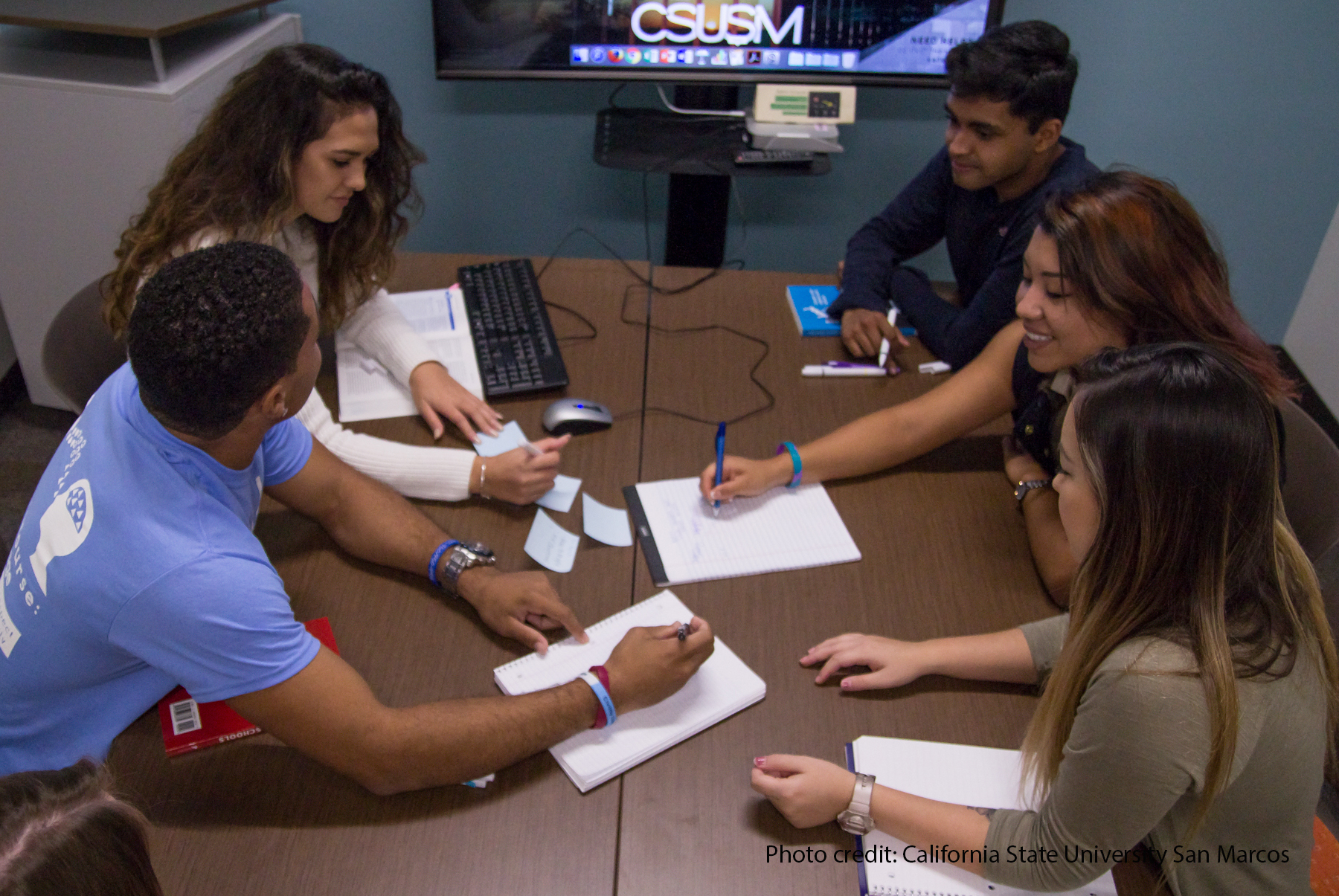Doctoral students are often tasked with conducting research in and outside of their required coursework. When reviewing assignment details, a phrase that some students find daunting is, "provide your own data." I was one of those students. Where can you get data? How do you know it's reliable? Then a classmate of mine told me about the Center for Postsecondary Research (CPR) and how they allow graduate students to utilize their data for assignments and other research projects.
"The Center is very supportive of doctoral students--both at Indiana University and outside--seeking to conduct research with the suite of engagement data," said Kyle Fassett, a fourth-year doctoral student in the Higher Education Student Affairs (HESA) program at Indiana University Bloomington.
Christen Priddie, also a fourth-year doctoral IU HESA student agrees. "I appreciate the ease of access to center data because some of the class assignments we work on are difficult enough, so knowing that I could take the guess work out of finding a dataset was really beneficial," she said.
Priddie decided to use center data for her assignments because it had a lot of the variables that she wanted to examine, such as collaborative learning. One course where she used the variable, was Multilevel Modeling, where she examined the collaborative learning for Black STEM students. Using Center data has also allowed her to explore various phenomena that was taking place with data already collected. This allowed her a sense for how to create new projects and build her dissertation research.
While taking a course on structural equation modeling, Fassett used data from CPR for a model-building assignment. Utilizing the Faculty Survey of Student Engagement (FSSE) and its Teaching Professional Development module, he looked at relationships between latent constructs. I, too, looked at relationships among variables when conducting a multiple linear regression for my Multivariate Statistics course. I used National Survey of Student Engagement (NSSE) data and an experimental set of questions about mental wellness to examine if student engagement in collaborative learning could be predicted by race, gender, and stress level.
Getting access to data is simple. If you're a member of the Indiana University (IU) community, the data is provided free of charge and begins with an application and review process, followed by the signing of an agreement form. For non-IU members, it's a similar process however a fee is accrued. Fourth-year HESA doctoral student Tom Kirnbauer has used Center data in three assignments and said one reason he enjoys using it is because it's "clean."
"The Center does a fantastic job of preparing the data, which includes ensuring the variables and response options are labeled correctly, recoding variables into dichotomous or collapsed versions, and having codebooks prepared to use as a reference," said Kirnbauer.
In addition to its cleanliness, Kirnbauer said prior studies in higher education have also used the data and serve as great references. "The previous studies provide a useful starting point for conducting a literature review, which is always a required component of a class project. Moreover, reading other studies allowed me to think more deeply about my research and understand how my study can contribute to the field of higher education," he said.
When students use data from CPR, they not only have access to supportive staff members who can assist them along the way, but their coursework can turn into conference proposals or publications. I was able to expand my research on collaborative learning experiences into an American College Personnel Association (ACPA) conference presentation. Fassett's research became a poster for the American Educational Research Association (AERA), and Priddie and Kirnbauer have converted several of their class projects into conference presentations and scholarly papers as well.
The requirements for using the data in conference proposals, are that a Center staff member must co-author the proposal along with the student and students must sign an agreement regarding the ethical handling of Center data. Kirnbauer shares that even though a staff member must serve as a co-author, they still allow students the autonomy to carry out the project as they envisioned.
Whether for a class assignment or dissertation research, the various surveys within the Center for Postsecondary Research provide great opportunities for graduate students to engage with data further and explore topics within their research interests. If you have an academic assignment and want to learn more about using the Center's data, please contact us nsse@iu.edu.


